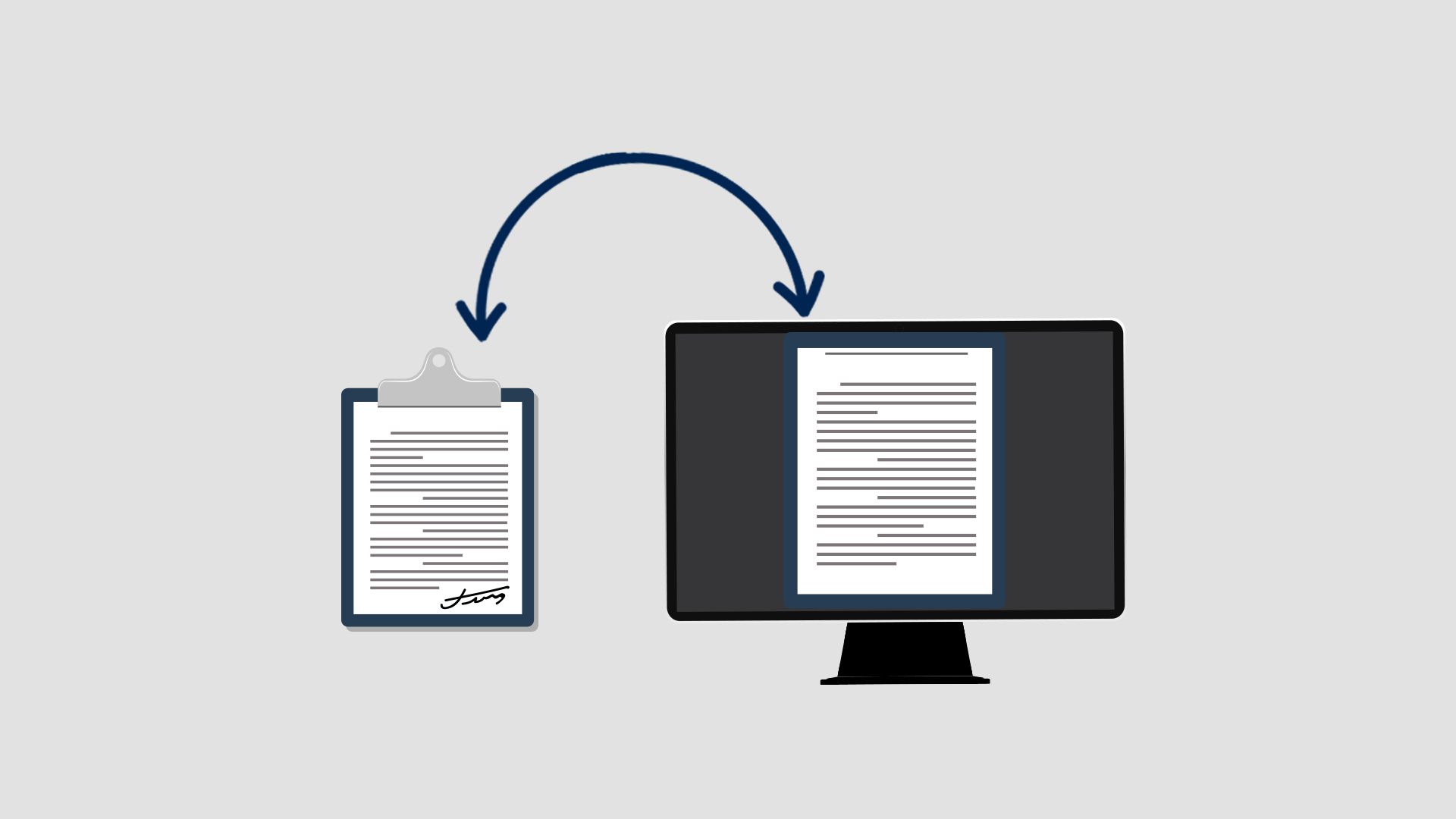Dematerialisation: What It Is, Meaning, Process, Importance & More

- Published Date: June 20, 2024
- Updated Date: January 30, 2025
- By Team Choice
Having shares in paper form is hard to handle and manage every share. The probability of losing shares also increases so people start to the dematerialisation of shares But first, you should know what is dematerialisation.
Dematerialisation involves converting physical security/share certificates into an electronic format. It was first introduced by the Securities and Exchange Board of India (SEBI) via the Depositories Act, 1996. The demand was to mitigate risks associated with physical share certificates and simplify investment processes.
In this article, we’ll take a look at the meaning of dematerialisation along with its importance, process, advantages, and limitations.
Dematerialisation Meaning

To simplify - Dematerialisation is a process of transforming or converting physical securities, including stocks, debentures, etc, into digital format. to make the transaction smooth and fast for the buyer and seller, the transferring and holding of shares also become secure.
In India, two major depository institutions registered with SEBI that handle dematerialisation of shares are:
- Central Depository Services India Limited (CDSL)
- National Securities Depository Limited (NSDL)
Open a FREE Demat Account in 5 Mins.
- Free AMC for First Year
- Low DP Charges (₹ 10)
- No Auto Square Off Charges
- Free Research Advisory
Process Of Dematerialisation: Step-By-Step Guide
The process of dematerialisation of shares is simple and straightforward. Let’s take a look at the step-by-step guide to know how to convert physical shares to Demat form:
Step 1: Select A Broker As A Depository Participant (DP):
- A depository participant or DP is an institution registered with either depositories - CDSL or NSDL.
- To get started with the process of dematerialisation, you’ll need to select a trusted DP (a stockbroker or bank) and open a Demat account with them.
Step 2: Open A Demat Account:
- A Demat account holds all your dematerialised shares securely in one place. To open a Demat account, fill out the account opening form, submit the required documents, and complete the KYC verification.
- Submit the following documents - A copy of your PAN card, proof of address (Aadhar Card, Driving License, or Passport), income proof, last 3 months’ bank statements, and passport-sized photographs.
Step 3: Submit The Dematerialisation Request Form:
- Once your Demat account is opened, you can request the share dematerialisation of your physical share certificates. You can do so by filling out the Dematerialisation Request Form (DRF) and submitting it with the physical certificates to the DP.
- It is important to note that the investors must write Surrendered for Dematerialisation on each share certificate.
Step 4: Verification And Conversion:
- The depository participant is responsible for verifying the details and processing the request to the respective company/Registrar and Transfer Agents (RTA) through the depository.
- The company or RTA will verify the certificate details, and if everything is in order, they will approve the dematerialisation request.
Step 5: Credit To The Demat account:
- Once the request is approved, the securities will be transferred or credited to your Demat account. Your DP will update you on this.
Importance of Dematerialisation: Why Is It Needed?
Let’s take a look at its importance in understanding why investors must dematerialise their investments.
- Dematerialisation mitigates the risks associated with physical share certificates, including theft, fraud, forgery, damage, and more.
- It helps to reduce paperwork, enabling quick and efficient transferring of securities.
- It enables holding, managing, and tracking securities in one place via an online platform.
- The process of dematerialisation is cost-effective as it eliminates the costs associated with physical share certificates.
- It helps to ensure compliance with regulatory requirements, allowing investors to adhere to the rules and regulations.
Advantages Of Dematerialisation: How Can it Benefit You?
Security:
Dematerialising shares can help investors enhance the security of their investments as it mitigates the risks associated with physical share certificates (fraud, damage, theft). The converted electronic shares are maintained securely by depositories, ensuring the safety and security of assets.
Efficiency:
Dematerialised forms of shares make the process of buying, selling, and transferring securities more efficient and convenient. It helps reduce the time and effort required for physical and manual paperwork, enabling quick transactions of securities.
Reduced Costs:
The main aim of Dematerialisation is to go paperless by converting the physical certificates into electronic format. Thereby, reducing the costs associated with physical certification, such as the issuance cost, handling cost, storage fee, delivery charges, etc.
Ease of Management:
Investors can easily track and manage their portfolios online via a Demat account. It enables a consolidated view of securities’ details, access to account statements, and tracking of holdings in real-time anytime, anywhere.
Leverage Investments:
Through dematerialisation, investors can use securities as collateral for loans. Many financial institutions or loan facilities prefer electronic forms of securities as they facilitate quick transfer. Thus, it assists investors in leveraging their holdings for additional finances.
Corporate Benefits:
Dematerialisation can help investors easily participate in corporate actions, like voting, dividends, rights issues, and more. All the entitlements are directly credited to Demat accounts, enabling convenient engagement in corporate benefits.
Limitations of Dematerialisation: Know The Challenges
Short-Term Profits:
Dematerialisation has made the process of investments easy and more convenient. Thereby, investors frequently engage in the trading of securities in volatile markets. Investors often focus on short-term gains rather than long-term returns.
Dependency On Technology:
Individuals who don’t have much knowledge in handling computers or need training in using digitalised technology can face difficulties while using a Demat account. Also, technical glitches can disrupt access to demat accounts in required situations.
Summary
With evolving technology, dematerialisation has become an integral part of stock markets. It enables smooth and easy transfer of securities while helping investors manage their portfolios effectively. Thus, it is a prerequisite to start investing in financial markets. It is important to choose the right broker for opening your Demat account, as it will ensure that you are leveraging the best support and services for your investment needs.
FAQ
Can you explain dematerialisation in short?
Yes, the process of holding shares in electronic form is known as dematerialisation. It facilitates easier and more efficient trading in the stock market.
Do I need to dematerialise my physical share certificates to trade in the stock market?
Yes, to participate in the stock market investment, you’ll be required to convert your physical shares to a Demat form.
How long does it take to convert physical shares into electric form?
The process of dematerialisation usually involves 30 days. In case it exceeds 30 days, get in touch with your DP as soon as possible.
Is there any specific last date to convert physical shares to Demat form?
There is no specific last date to convert physical shares to Demat. However, the trading of physical shares has been largely phased out by SEBI. Therefore, it is advisable to dematerialise your shares at your earliest convenience.
Physical Share Certificate Dematerialisation Last Date
September 30, 2024, All private companies are compulsory to follow the rule of dematerialisation of shares within the given period of time.
Recommended for you

Garment Mantra Lifestyle Ltd Rights Issue 2025

FII DII Data

Crude Oil Price Forecast for Next Week
